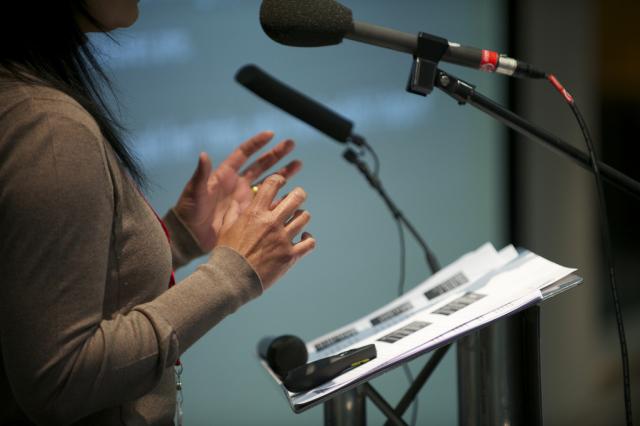
It follows a Test-Teach-Test logic.
Procedure
- Day 1: Student A chooses a topic and talks for 3 to 4 minutes - students B, C and D then ask questions about the content, the teacher notes down problematic language
- Day 2: The teacher inputs all the lexical items and phrases problematic for the students and feeds in any new items that would improve the task.
- Students re-tell their improved version to a new group and are at the end given an individual feedback sheet which focuses both on problematic as well as good use of language and pronunciation.
This activity is suitable for any type of class and any age - students like it and it is a chance for freer speaking practice that is also developmental.
Comments
Speaking activity
Hi Shamin
This is a suggested procedure for how to get students to improve their speaking through giving mini-talks, receiving feedback, then repeating the activity taking the feedback into acccount. On the second day, the teacher would give feedback (probably to the whole class, unless it is a very small group!) with corrections and suggestions for improvement - these would depend on the errors made in the first part of the activity, but would probably focus on lexis, or pronunciation or on grammar mistakes.
The idea is that the students re-tell their version in different groups, and yes, the teacher would monitor group by group to give feedback. Alternatively, you could get the other students in the group to evaluate and give feedback to each other.
Hope that helps,
Cath
TE Team
Could we possibly have access to a sample worksheet which the T distributes among Ss on the second day? And how 'Students re-tell their improved version to a new group' could be possible? Does it mean that Ss should work in different groups in the class, and teachers monitor them group by group?